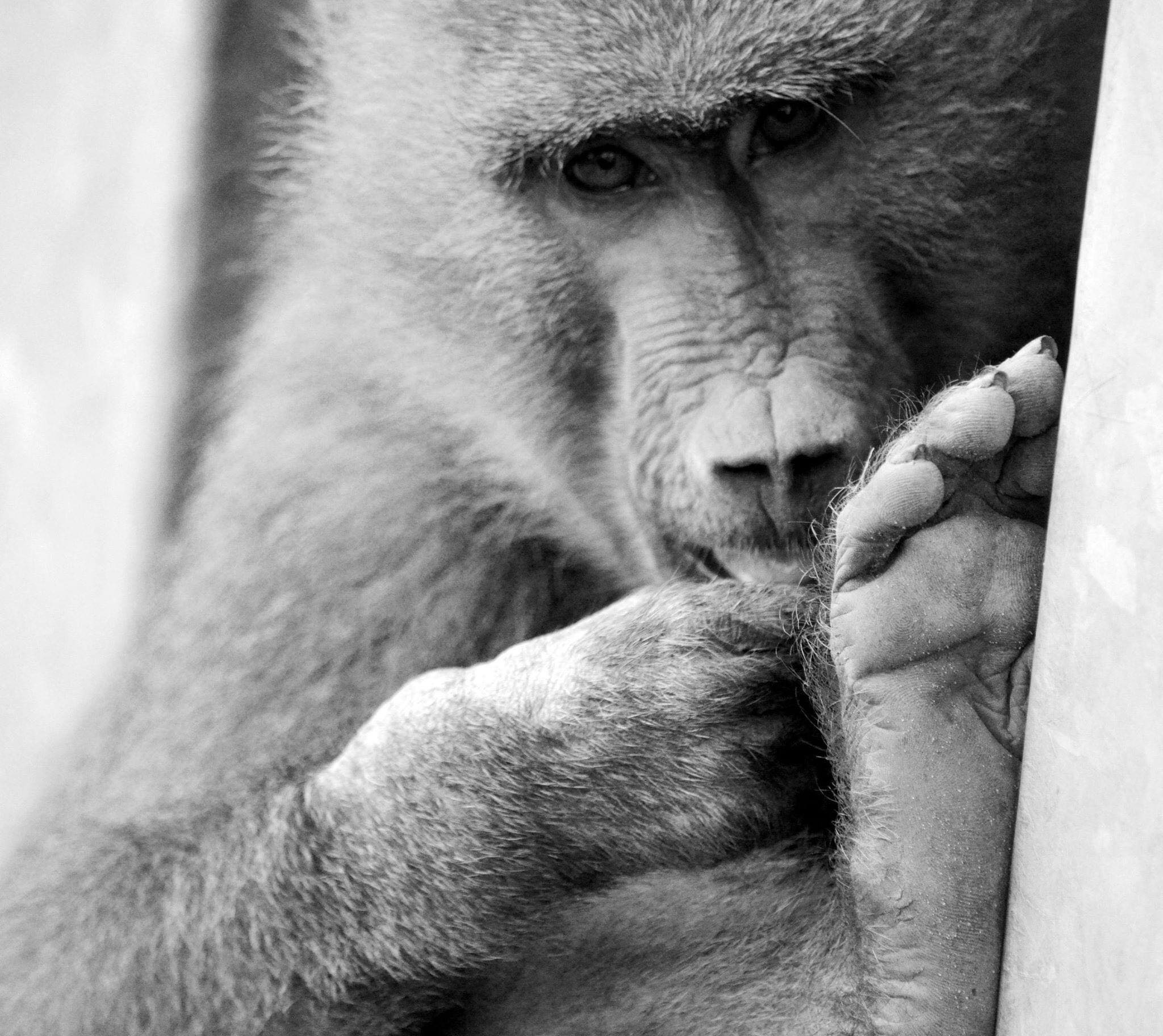International Primate Day 2020
Primates are one of the most diverse groups of animals on the planet. They have adapted to numerous challenges such as living in a range of difference habitats, navigating complex social dynamics and utilising a huge variety of nutritional possibilities, but what is the key to their success? One such reason is their intelligence. Having relatively large brains compared to their body size, they are adept are solving cognitive problems which is something that has helped them to adapt in the wild and is an important consideration in captive situations.

Lemurs interacting with an enrichment device which encourages foraging and manipulation behaviours at one of our partner facilities in Thailand
Ensuring all the needs of every individual primate is met in a captive setting can be a difficult job but one that Wild Welfare are more than happy to help with. Many facilities that we work with house primates, and staff members are often keen to learn new and innovative ways in which to ensure their primates thrive. The way we do this is through a mixture of training workshops, helping animal care staff to understand the core fundamentals of animal welfare, conducting welfare assessments ourselves and also sharing ideas and information with the teams. Scientific animal welfare research is delivering new conclusions all the time but this kind of information is not always accessible to the facilities we work with, therefore it is vital that we can disseminate new findings to them.

A Gibbon in Vietnam enjoys resting and brachiating from new bamboo furniture
In Vietnam we have helped to provide and build better furniture for loris and gibbons, ensuring both species have more climbing opportunities and comfortable resting areas within their enclosures. Whilst in Vietnam we have also encountered countless macaques who are now enjoying more extensive and challenging climbing furniture (some of it even moves!) and whose keepers know how to make healthy ice lollies to keep them cool in the heat of summer. In Indonesia we have changed the lives of orangutans who have been given new beds to rest on and even brand new enclosures for them to enjoy. Several species of smaller primate such as squirrel monkeys and the callitrichid family (marmosets and tamarins) can benefit from our Care For Us guides which offer species specific care and information in which their welfare can be improved. Those guides have also been translated into Portuguese which is immensely helpful for our partner projects in South America. We have even visited Madagascar and provided training for the countries lemur facilities. Whilst there one of the main problems we needed to combat was the lack of a word denoting the concept of animal welfare in the local Malagasy language. This problem has since been rectified.

A Macaque manipulating a puzzle feeder
To experience a good standard of welfare, primates need a stimulating environment which offers cognitive challenges such as enrichment devices that can be manipulated and offer mental stimulation. Puzzle feeders are an excellent example of this. Primates are so inquisitive that any novel object often holds a fascination for them which is why rotating enrichment items is such an important aspect of their care and welfare.
A primate habitat should mimic the environmental challenges which that species experiences in the wild. For example, an arboreal primate such as a langur, gibbon or marmoset will thrive with a variety of climbing structures, trees and resting areas which are placed at a height. However a gorilla or baboon will need interesting aspects at ground level as well as climbing structures. These could include different substrates such as bark chip, grass or straw.

An obstacle course for marmosets!
The social lives of primate families can be akin to a soap opera, with family dynamics, power allies and friendships shifting constantly. Primates need opportunities to socialise with others of their own kind but sadly we often come across singly housed primates separated from the rest of their troops. Effective management of primate troops can be tricky because conflicts do happen but part of what we do is help animal care staff understand how to recognise individuals and their group dynamics as well as manage them effectively. We also ensure that the reasoning behind why this is such an important aspect of their welfare is understood.
The nutritional needs of primates are complicated. Some species eat a hugely diverse diet of different fruits, vegetables, clays, gums and various sources of protein. Other species will specialise in just a few types of leaves from particular trees and even then they can be very fussy! Sugar content is a relatively recent discovery as a potential cause of diabetes in captive primates which are being fed fruits which are cultivated for human consumption. Vegetables are a healthier substitute and can be cooked to increase palatability.

A gorilla enjoying a lunch time snack
When all of these factors are understood by animal care staff, it can ensure that the husbandry practices given to primates are exemplary in quality, therefore allowing primates not only to survive, but thrive.
“Primate welfare needs are incredibly difficult to meet in captivity but having seen the work that Wild Welfare do to improve the lives of primates, and helped to make those improvements myself, I have hope that in the future every captive primate can experience an excellent standard of welfare. The process is long and can be frustrating but we are getting there.” Sarah Blake, Animal Welfare Field Manager, Wild Welfare.
Squirrel monkeys utilising an enrichment device in Thailand
Learn more about how we encourage positive changes for primate welfare and many other species, by visiting our What We Do page






